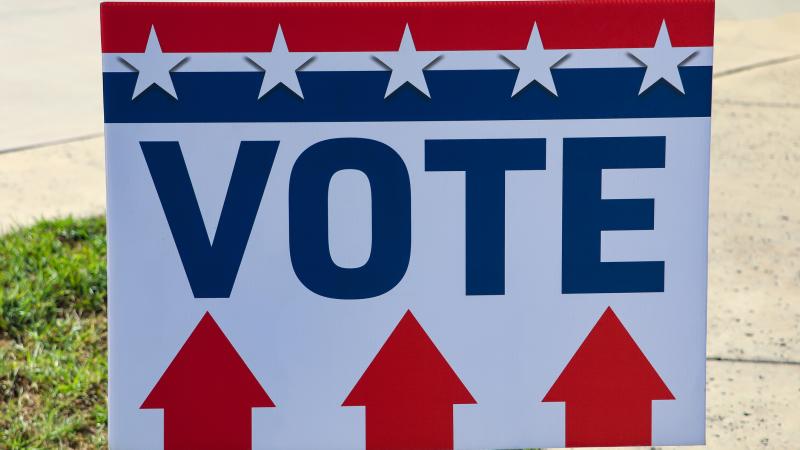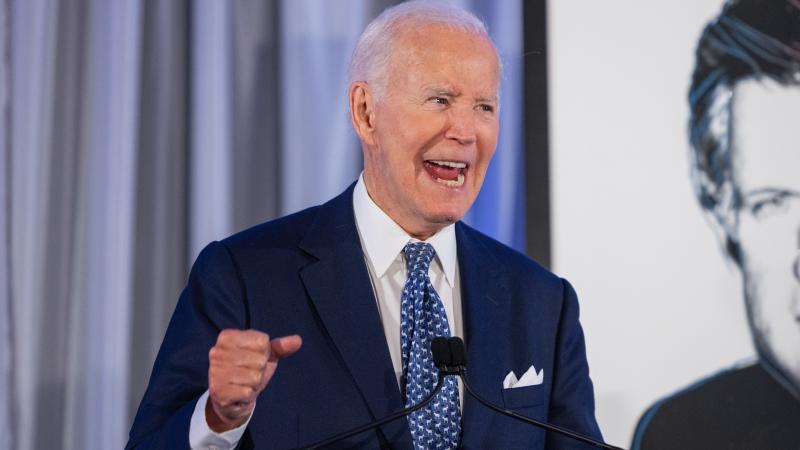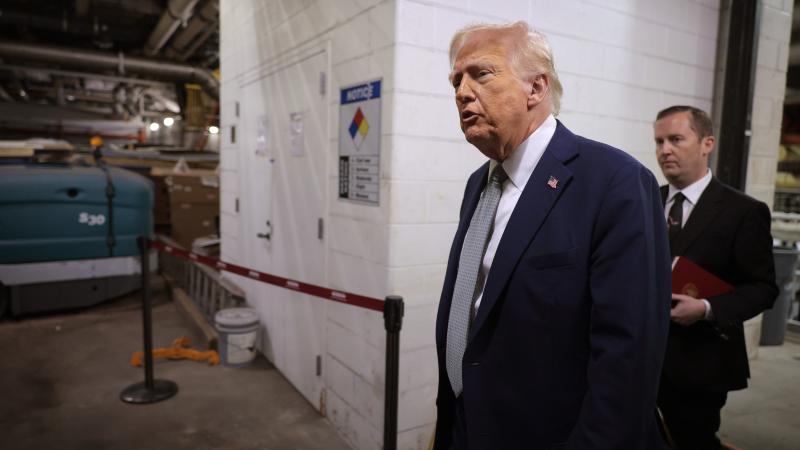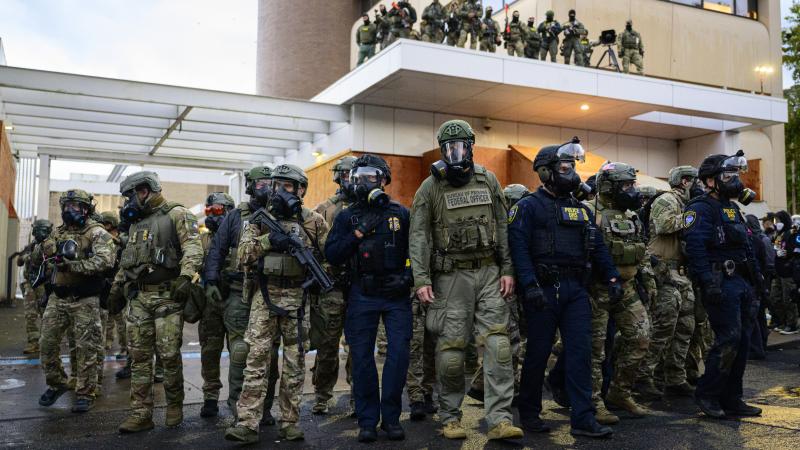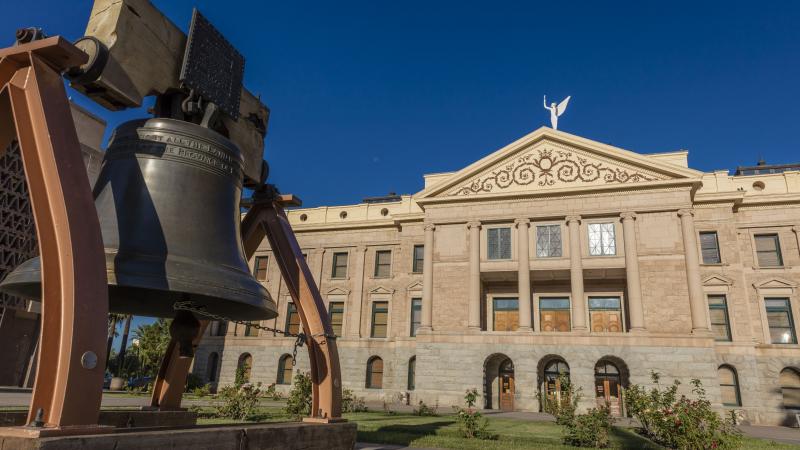Beards, protests and 'addiction of revolution': Mamdani's time in Muslim Brotherhood-ruled Egypt
Mamdani arrived in Egypt as a college student with the Muslim Brotherhood in charge, and left soon after the Egyptian military took over again. His time there, in his words, taught him of the "addiction of revolution."
New York City Democratic mayoral hopeful Zohran Mamdani spent a summer in college in Egypt, where the self-described democratic socialist — who was not yet an American citizen — said he learned about the “addiction of revolution” and witnessed the overthrow of the Muslim Brotherhood by the Egyptian military firsthand.
Mamdani, who is currently under fire for his praise of Sirraj Wahhaj, an extremist NYC Muslim imam and an alleged possible unindicted co-conspirator in the 1993 World Trade Center bombing, has a yearslong record of anti-Israel activism, but his time in Egypt in the final days of the Muslim Brotherhood’s brief rule of Egypt is an underexamined part of his past.
The Daily Caller reported that a super PAC called "Unity and Justice Fund" supporting Zohran Mamdani’s campaign for New York City mayor accepted $1,000 from Wahhaj.
Mamdani's reflections on his time in Egpyt as a young man
Mamdani wrote an article in August 2013 for the Bowdoin College student newspaper about his time in Egypt that summer, explaining how he had grown (and then soon shaved off) a thick beard that he was repeatedly told made him look like a supporter of the Muslim Brotherhood, how he grew to understand the “addiction of revolution [and] of protest” as he saw groups gather against the failed rule of the Muslim Brotherhood, how his Arabic language professor in Cairo was a supporter of the Muslim Brotherhood, and how he left Egypt in the wake of the ouster of Muslim Brotherhood leader Mohamed Morsi out of concern that he — as a foreigner — might be targeted by the Egyptian military or its supporters.
He seemed critical of the Muslim Brotherhood’s rule during his time in Egypt, but seemed even more critical of the Egyptian military — particularly the Supreme Council of the Armed Forces (SCAF). He was also critical of the “fulool” — described as remnant supporters of the former regime of longtime Egyptian president and military strongman Hosni Mubarak — and urged people not to be fooled by their efforts.
The future mayoral candidate also seemingly questioned the wisdom of the decision by the Egyptian Revolutionary Socialists to join in protests against the Muslim Brotherhood, asking if a socialist revolution would really be easier with the Egyptian military back in charge.
Just the News previously reported on how Mamdani’s years-long rise to prominence was assisted by Palestinian-American activist Linda Sarsour, whose views on Israel have stirred years of controversy and accusations of anti-Semitism. Just the News also described how the self-described socialist candidate has shared a host of Communist views.
Mamdani’s own past rap lyrics also praised “the Holy Land Five” — convicted by the Justice Department for supporting the terrorist group Hamas. Mamdani began accusing Israel of a genocide two weeks after the Hamas terrorist attacks in October 2023.
The Mamdani campaign did not respond to a request for comment.
The revolutionary tinderbox that Mamdani stepped into in 2013
The Muslim Brotherhood — a radical Islamist group which had spent decades trying to overthrow Egypt’s military government — briefly came to power in Egypt in the wake of the Arab Spring. The Muslim Brotherhood-backed January 2011 Egyptian Revolution — notable for massive protests in Cairo’s Tahrir Square — resulted in the February 2011 resignation of Mubarak.
Morsi — the leader of Egypt’s Muslim Brotherhood — was soon elected president of Egypt after Mubarak’s removal, and he served in the role from June 2012 until July 2013. During his tenure, Morsi issued a sweeping constitutional declaration in November 2012 which granted him significant powers. Following large-scale protests in June 2013, the Egyptian military — led by Abdel Fattah el-Sisi — removed Morsi from power. Sisi is the current ruler of Egypt.
The Muslim Brotherhood was founded by Sunni imam Hassan al-Banna in Egypt in the 1920s, with the aim of establishing an Islamic state — a caliphate — which would be governed by sharia law. Sayyid Qutb — a major thinker for and leader of the Muslim Brotherhood in the 1940s, 1950s, and 1960s — was an Egyptian revolutionary whose promotion of jihad is believed to have inspired more modern jihadists such as Osama bin Laden and Ayman al-Zawahiri.
Zawahiri joined the Muslim Brotherhood as a teenager and later founded the Egyptian Islamic Jihad. After his jihadist group merged with al Qaeda in the 1990s, he became bin Laden’s longtime deputy, and the group went on to conduct global terrorist attacks, including 9/11. Zawahiri took over the group after bin Laden was killed by U.S. forces in Pakistan in 2011. Zawahiri was killed in a U.S. drone strike in Kabul in 2022 after the Taliban took over the country again in August 2021.
Hamas is also considered to be a branch of the Muslim Brotherhood, and numerous other Muslim groups and organizations are closely linked to the group. Congressional Republicans are currently pushing for the Trump State Department to designate the brotherhood as a Foreign Terrorist Organization.
Mamdani headed to Egypt just before the Muslim Brotherhood is overthrown
Mamdani wrote in the Bowdoin Orient in 2013 that “I had studied at Middlebury’s Arabic program” in the summer of 2012 and that his friend “then recommended a language institute in Cairo. I took his advice, and this summer, I signed up for six weeks of an intensive language course and gave myself a week at the end to travel around the country.”
The future mayoral candidate detailed the protests against the Muslim Brotherhood as he saw them.
“The Egyptian conflict is not one of two sides, instead it encompasses many: from tamarod (the group that organized the protests and reflects much of the Egyptian left’s concerns) to the resurgent feloul (the remnants of former president Hosni Mubarak’s regime), the ever-present army, and the ikwhan (Muslim Brotherhood), amongst others,” Mamdani wrote. “The confusion lies in that other than the ikhwan, these groups increasingly speak with one voice, and so give off the impression of a true political alliance. Yet their united front is built first and foremost on a rejection of the ikhwan, and so they are united only in opposition — a dangerous basis for any partnership.”
Mamdani wrote that “I arrived in Cairo on Wednesday, June 19, eleven days before the onset of nationwide protests that were to depose President Mohammad Morsi and the Muslim Brotherhood” and that he moved into an apartment which was just “a couple minutes walk from Tahrir Square.”
“I had arrived in a society where privilege was a different color,” he wrote. “Gone was the image of the white Christian male that I had grown accustomed to, and in its place was a darker, more familiar picture — one that, for the first time, I fit: brown skin, black hair, and a Muslim name. With the right clothing, some took me for an Egyptian and most thought I was Syrian — either identity allowed me unrestricted access to exploring Cairo.”
Mamdani romanticizes the “addiction” to protest and revolution: "I felt at home"
Mamdani wrote that “on Thursday June 27, four days into my studies, I stopped at Tahrir Square on my walk home from the Metro. The June 30 mass march was still a couple days away, but Morsi was scheduled to speak later that night — in part addressing the coming demonstrations — and so protesters had gathered to watch a projection of it in the square.”
He described the scene as “a world of intoxication, of mass appeal” and that “it was like a potent mix of revolution, soccer stadia [sic], and a shitty Newsweek cover. I felt at home.” He wrote that “after just a little while in Tahrir, I understood the addiction of revolution, of protest” and that “this new social solidarity was founded in a widespread opposition to all that the government had grown to represent — inefficiency, unjustness, and sectarianism.”
The future mayoral candidate also wrote that “although I saw many women at the protest, and at protests in the days ahead, they had to contend with the very real threat of sexual harassment and assault, especially at night.” He wrote about two groups which “strive to disrupt attempted assaults and are present at most major protests in the square” and said he considered helping them in these efforts, but didn’t. Mamdani wrote: “Enraged by the stories and statistics, I thought of volunteering only to come to the realization that the last thing Egyptians needed was a well-meaning foreigner’s assistance.”
Mamdani discovers "fear of the beard"
He had written in the school paper: “In the last year I’ve added another distinctive feature: a beard. It began mostly as a symbolic middle finger to the sometimes spoken, but oft-accepted, stereotype that pervades America: ‘Brown with a beard? Terrorist!’ When I got to Cairo, though, it became clear that this fear of the beard was not constrained by borders. Many of my Egyptian friends — first jokingly and then more seriously — told me that I looked ikhwani, like a member of the Muslim Brotherhood.”
Mamdani noted that “earlier that day, my professor had urged me to watch Morsi’s speech.” He wrote: “As I struggled to understand a presidential address, I turned to my Egyptian roommate for some translation. He laughed, saying he couldn’t understand it either, although we both knew that his issue was the political message while mine was the vocabulary. As his chuckle came to an end, he mentioned my beard again. Having watched the protest in which the ikhwan were denounced, I decided that it was probably time for a trim.”
He said he went to the barbershop that night to get his thick beard trimmed, writing that “I felt like one of the countless brown-skinned citizens and residents of the United States who, in the weeks after September 11, traded in their beards for razors, their pagdis for dreads—except that by ‘War on Terror’ standards, Egyptians on all sides of the conflict would have been suspect in America.”
The future mayoral candidate said that, after the haircut, “I emerged a fashionable Egyptian, with a light beard and a faux-hawk.” Mamdani wrote that “I could deal with the occasional ‘nice terrorist beard’ remark from a drunk prep-school graduate at a College House party, but the threat of exploding anger from hundreds of thousands of protesters was a different matter. I realized I was flaunting my stubbornness, not my activism, anymore. Yet even after my trim, the reasons for having a beard still remained. My beard was a rebuttal to the narrow associations that it carried both in America and Egypt. Singularity, and the simplicity of its conclusions, is always dangerous.”
Mamdani seemed to critique the protests against the Muslim Brotherhood
The future mayoral candidate shared an article written by Mohamad Elmasry, tweeting that the article was “an interesting counterpoint to today's #tamarod protests — I agree w/ some of his points, & w/ some of 1st comment.”
The article was written by Mohamad Elmasry, who had been a professor in Qatar and Egypt, and it was titled, “Unpacking Anti-Muslim Brotherhood Discourse.” The article was critical of the “propaganda” aimed at the Muslim Brotherhood’s rule.
“Egypt has experienced its own propaganda program in recent months. What is perhaps unique about Egypt’s propaganda campaign is that it is an anti-government campaign initiated by a diverse group of oppositional forces," the article said.
The article alleged that “Hosni Mubarak-era media owners, Mubarak regime loyalists, and key members of Egypt’s liberal and secular opposition have teamed up to create arguably one of the most effective propaganda campaigns in recent political history” and that “these forces have managed to demonize Egyptian President Mohamed Morsi and the Muslim Brotherhood, from which Morsi hails, to the extent that many Egyptians openly call for the overthrow of the democratically elected government and the imprisonment of Brotherhood members.”
The article conceded that the Muslim Brotherhood had made mistakes, but that “none of their mistakes warrant systematic demonization, terrorism, or overthrow” and that “there is a massive disconnect between the Brotherhood’s mishandlings and the reaction that they instigated, thanks to the propaganda that the Brotherhood’s challengers have spread.”
“At best, the Muslim Brotherhood is struggling to solve Egypt's myriad problems, simultaneously battling thugs in the street, a seditious opposition, corruption in the judiciary, and a state that is in shambles at many levels,” the article that Mamdani shared said. “At worst, they are incompetent rulers. Even if the incompetence theory proves true, the Brotherhood does not deserve violence or overthrow, despite what the propaganda war against them may suggest.”
Also on June 30, 2013, Mamdani tweeted out a photo that he had taken earlier that day “from my window” just two minutes away from Tahrir Square, with the photo taken from above showing dozens of protesters in the street below.
Mamdani tweeted on July 1, 2013 that he seemingly disagreed with the alleged assessment of Ahmed Eldin — then a reporter at HuffPost Live — who had reportedly said that "I wish I were in Tahrir, to be honest ... Military is lesser of two evils." #Egypt
“Ya akhi [My brother], u'd really rather #SCAF and their #fulool brothers?” Mamdani tweeted. “Even when u post about circular nature of EGY's [Egypt’s] recen[t] hist[ory]?”
Mamdani wrote that “the masses got their wish on July 3, when General Abdel Fatah al-Sisi, the head of the Egyptian army, announced that Morsi was no longer the president, the constitution was suspended, and fresh elections were to take place in the near future.” The same day that Morsi was removed from power by the Egyptian military, Mamdani tweeted out “an important article to read.” Mamdani included the hashtags “#egypt #tamarod #SCAF.”
The piece he shared was written by blogger Mohamed El Dahshan for Foreign Policy, and it criticized the euphoric response by many Egyptians to the end of Muslim Brotherhood rule.
“You’d think we'd won the World Cup: cars honking, loud celebratory music, people carrying flags. There are also flags hanging from the military helicopters flying at low altitude above Egypt's main cities,” the article said. “The joke's on us, though. This isn't a cup, it's a coup. A military coup against a failed president, but a coup nonetheless. This is no time for celebration.”
The article conceded that the Muslim Brotherhood had “squandered much of the public sympathy it had garnered” but lamented that “now the clock is being reset to 2011, and Egyptians are faced with the ridiculous choice between a military junta or a theocracy-flavored-dictatorship.”
“This is no day for celebration,” the article shared by Mamdani concluded. “I have no sympathy whatsoever for the Muslim Brotherhood; I was out there yesterday, too, protesting their disastrous rule. But we have to remind ourselves that the enemy of my enemy is not my friend. The army communiqué speaks doom, not salvation.”
The same day, Egyptian blogger Bassem Sabry tweeted that “those supporting ‘temporary shut down’ of religious channels in Egypt argue they were inciting violence, had to be suspended for short bit.” Mamdani retorted, “Couldn't #Morsi have argued the same if he shut down opposition channels arguing for protests/army support?”
Morsi is deposed and Mamdani leaves Egypt "engulfed in euphoria"
Mamdani soon left Egypt briefly.
“While I was engulfed in the euphoria of the anti-Morsi protestors in my neighborhood, my parents’ worry intensified with each day. I left Cairo in the early hours of Friday, July 5, finally giving in to their requests to come home to Kampala, Uganda,” he wrote for the student paper. “I stayed with my family for two weeks, spending my time reapplying for my Egyptian visa and attempting to convince my parents to let me return to Cairo.”
Mamdani also weighed in on the events in Egypt while back in Uganda in a tweet on July 10, 2013. He shared an “important read on the equally troubling ?'s of state censorship & self-censorship.” The article was written by Egyptian blogger Mada Masr, and the piece seemed to argue that an incident “in which over 50 members of the Muslim Brotherhood were killed by army gunfire outside the Republican Guards headquarters” may have been an unjustified attack by the Egyptian military.
Mamdani wrote in the student paper that “my parents relented” to his desire to return to Egypt, “and on Sunday, July 21, I was back. I met my roommates with smiles and hugs, spoke my aamiyya [Egyptian Arabic] excitedly, and unpacked my bags for my last three weeks in Cairo.”
He tweeted on July 21, 2013 that he “just flew from Entebbe, UG [Uganda] to Cairo” and that the “Egypt Air check-in lady handed me immigration card” which said "Syrians & Palestinians" on the back of it. Mamdani then tweeted that, when he asked an Egypt Air official about it, the official replied, "Are you palestinian, syrian? no? don't worry about it. They have special visas."
In both of those tweets, Mamdani tagged Ali Abunimah, the co-founder of the anti-Israel website, The Electronic Intifada.
Mamdani questions the Egyptian Revolutionary Socialists for helping bring down Morsi
The future mayoral candidate wrote in the student paper that things had changed in Egypt since he left.
“The whole time I had been at home in Kampala I was sure that my parents had been hasty in evacuating me. While there was violence in Cairo, it was localized, and I could steer clear of it entirely. But when I walked into class on Monday, July 22, I lost my certainty,” Mamdani said. “There had been two things I could count on for every class: that my professor would provide his perspective as an ikhwan supporter during our debates and that he would do so while bearded. Although we continued our discussions, he had replaced his beard with a moustache, robbing his facial hair of its politics and leaving it only with aesthetics. He brushed off my questions as to why, playing down his new look. We moved on to grammar, leaving reality behind.”
Mamdani said that his Muslim Brotherhood-supporting professor “had always asked me to walk with him to the Metro after class and I had always declined” but that “that day, I was so excited to be back in Cairo, in class, living in Arabic, that I asked him if we could walk together.”
He wrote that, during their walk, his professor “told me that his mother asked him to shave it [his beard] because of all the anti-ikwhan rhetoric on the streets.”
Mamdani said that “when I had mentioned the rise in xenophobic rhetoric towards Palestinians and Syrians as part of the army’s ploy to associate the ikhwan with forces outside of Egypt, my professor advised me to stop speaking Arabic” and that “he wanted me to speak only in English, so that no one could mistake me for a Syrian.”
The future mayoral candidate said that “I was shaken by his words” and that “outside of the classroom our conversations were short, abrupt, and soft-spoken, all because of his fear.”
Mamdani tweeted on July 22, 2013 his critiques of the stance taken by the Revolutionary Socialist Party of Egypt — a Marxist and Trotskyite revolutionary party which had joined the protests which overthrew Mubarak in 2011 but then also joined the protests which ended with the overthrow of Morsi in 2013.
Gigi Ibrahim, an Egyptian blogger and self-described Revolutionary Socialist, shared commentary by Hossam el-Hamalawy, a self-described Revolutionary Socialist and a leader in the party. Ibrahim tweeted that she was sharing the “Egypt Revolutionary Socialist position on Egypt's recent coup.”
The commentary by el-Hamalawy said that the Egyptian socialists had been "Against the MBs [the Muslim Brothers], Against the folool (remnants of the Mubarak regime), Against SCAF." The Egyptian politburo member his party “was part of the effort and the street mobilization to overthrow Morsi” but that they “have made it clear this was not the end goal solely” and that his party wanted Morsi “tried together” with Mubarak “and the SCAF generals in one cage.”
Mamdani responded to this by asking, “Intentions and desired end goal aside, is revolution any more possible if its #SCAF in power and not #MB? #RevSoc.” The hashtag he used is commonly used by the Egyptian Revolutionary Socialists.
On July 24, 2013, Mamdani also promoted an article by Egyptian-British writer Ahmed Kadry, a self-described male Egyptian feminist who wrote, “Try to imagine a packed Tahrir Square chanting not for the removal of Mubarak or Morsi, but men and women standing shoulder to shoulder demanding that the personal status laws be abolished. Male feminists are out there, some willing or less willing to openly state it, as well as many more waiting to be educated - and how well they are targeted will be crucial to whether or not women’s rights stay on the agenda and yield positive results in Egypt’s revolutionary upheaval.”
Mamdani leaves Egypt for good
Mamdani soon left Egypt out of concern that he might be targeted by the Egyptian military or its supporters.
“On Wednesday, July 24, Sisi announced that he wanted Egyptians to pour out onto the streets in two days to give him a popular mandate to 'confront terrorism.' Substitute ikhwan for 'terrorists' and the message was clear. My problem was that the substitution went further; with beard for ikwhan, Syrian for ikwhan, and foreign for ikwhan,” Mamdani wrote.
“Singularity struck again, and even though I had shaved the night before — opting for a (creepy) goatee — I still fit two of the descriptions. On Wednesday night, my parents told me to leave, and this time I agreed with them. By Thursday morning, I was on a plane to New York. By Friday night, I was in a bed in Brunswick.”
Mamdani wrote that “I complain of my fractured plans to my friends, but my comfortable existence does not compare with that of ordinary Egyptians. Like them, my last two months have been spent witnessing stages of turmoil, yet while I stood by watching, they were swept up. My dependence on Egypt’s future ended when my feet touched land at JFK; their dependence is forever. And it is for them that we must hope there will be a resolution.”
A dozen years later, Mamdani is the odds-on favorite to be the next mayor of America’s largest city.
The Facts Inside Our Reporter's Notebook
Links
- praise
- extremist
- unindicted co-conspirator
- wrote an article
- even more critical
- critical
- questioned
- assisted
- described
- praised
- tweeting out
- began accusing
- believed to have inspired
- also
- considered to be a branch
- numerous other
- currently
- pushing
- wrote
- detailed
- wrote
- wrote
- wrote
- wrote
- described
- wrote
- said
- written
- said
- said
- tweeted
- editor
- tweeted
- replied
- added
- tweeting
- written
- said
- alleged
- conceded
- said
- tweeted
- showing
- reporter
- said
- tweeted
- said
- wrote
- tweeted out
- piece
- said
- conceded
- concluded
- tweeted
- retorted
- wrote
- tweet
- article
- wrote
- tweeted
- tweeted
- co-founder
- wrote
- said
- said
- wrote
- said
- said
- tweeted
- self-described
- shared
- self-described
- tweeted
- said
- asking
- promoted
- Egyptian-British
- self-described
- wrote
- wrote
- wrote
- odds on favorite

